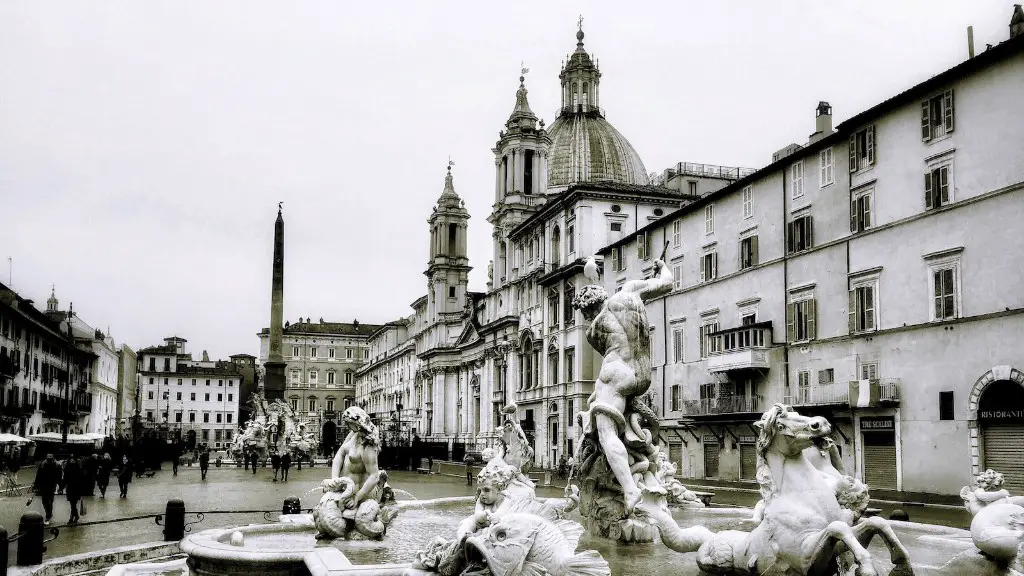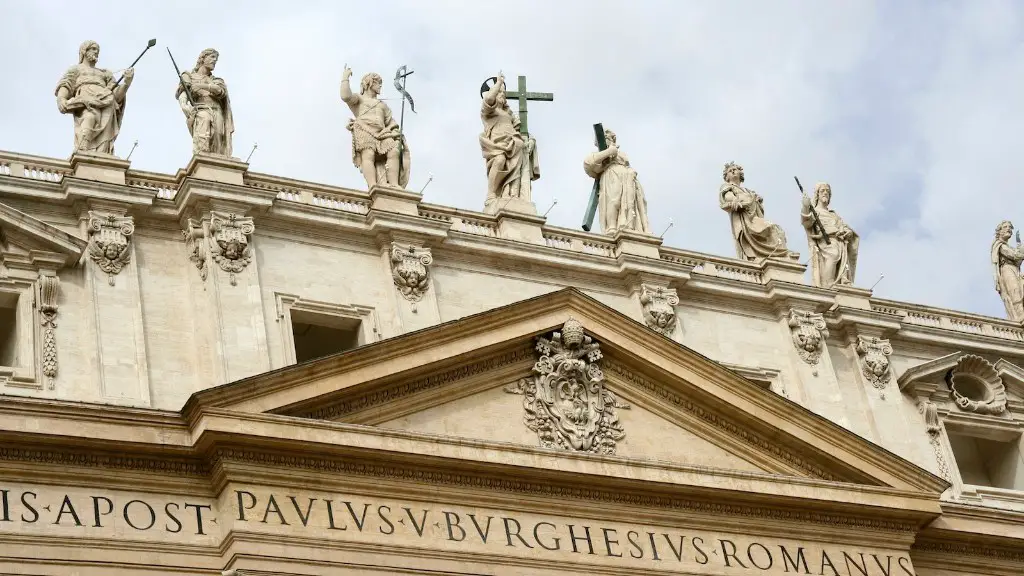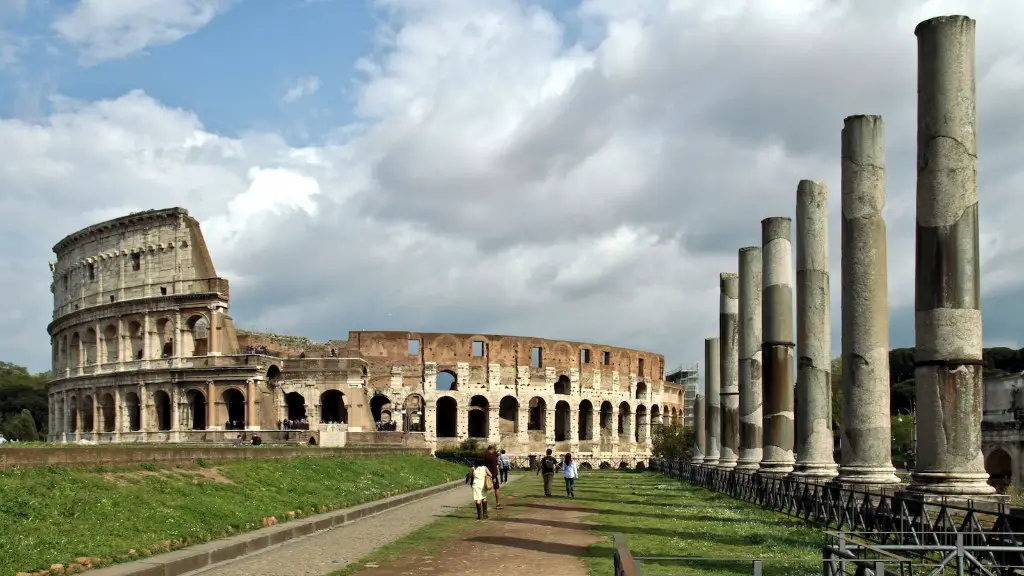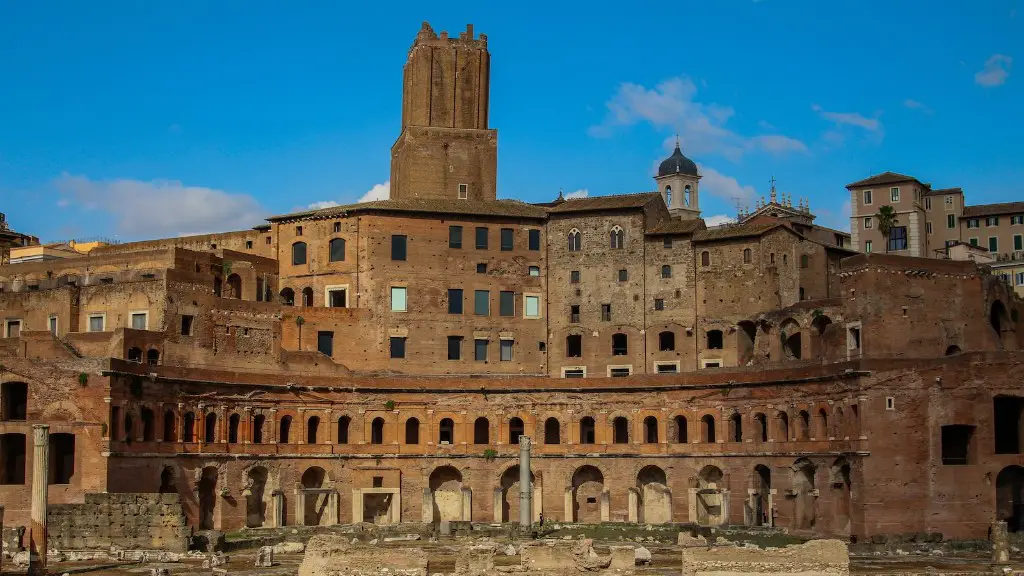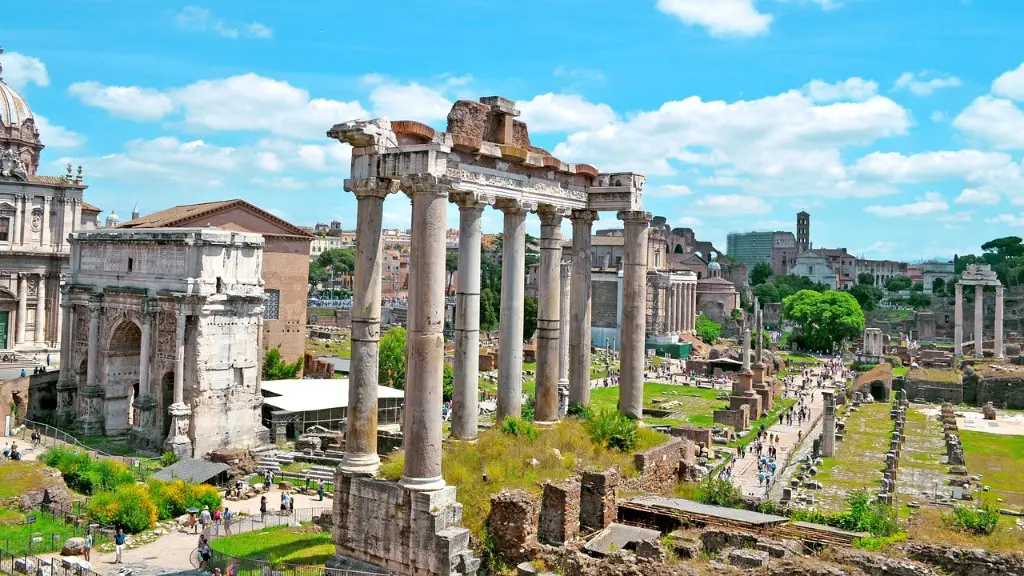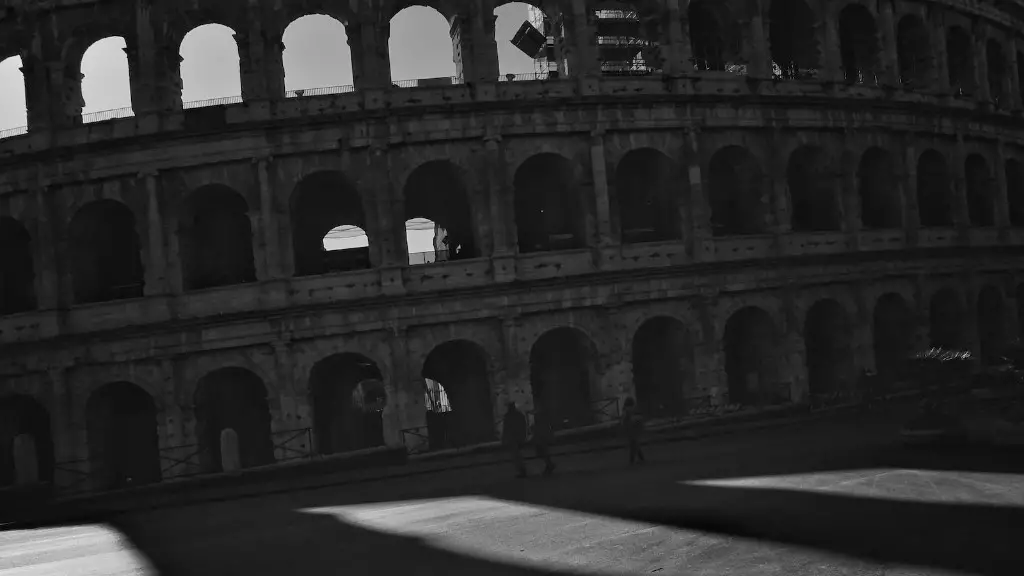Who Could Read and Write in Ancient Rome?
The ability to read and write was a privilege in ancient Rome. It was primarily the preserve of the wealthy, educated upper classes and was a sign of superior status and power. Literacy was essential to many aspects of life in the ancient Roman Empire, such as participating in lawmaking, the military, and religion.
Most common people in the Roman Empire were unable to read and write due to the lack of formal education available. The wealthy and the upper classes were the only ones who had any opportunity to be educated, and even then it was a privilege only a few were able to enjoy.
The upper classes had access to private tutors, while the lower classes had to rely on whatever limited education they could acquire by memorizing basic standard phrases, the use of symbols in the form of tally marks and outlines.
Evidence from ancient Roman literature indicates that literacy was concentrated in the upper class of society. Educated upper class people could write technical documents, legal documents, business letters, and other important records. But in contrast, the lower classes were generally illiterate and had to rely on scribes to write or record anything for them.
As literacy started to spread in Rome, it opened up opportunities for members of the lower classes to gain access to education. Some later Roman Emperors, such as Marcus Aurelius, provided free education to all children, regardless of social status.
In addition to the wealthy classes, some religious and professional organizations also taught their members how to read and write. For example, the Paleographic Society of Ancient Rome was a group of scribes who taught the people how to read and write in Latin and Greek, as well as how to make contracts, navigate law systems, and even to compose and read poetry.
Despite the spread of literacy, most of the lower classes could not read and write in ancient Rome. This contributed significantly to their lack of power and could be seen as a form of social control. However, literacy spread amongst the people gradually, and by the Late Empire literacy was widespread.
Roman Education System
Learning to read and write was a significant part of Roman education. Roman education in general was based on the classical Greco-Roman model, which included reading and writing, arithmetic, music, and physical education. There were three levels of education in the Roman system, primary or elementary school, secondary or grammar school, and tertiary or rhetoric school.
Primary school focused on memorizing basic content such as history and literature, the names of gods, and the rules of grammar. Secondary school went beyond the basics and students began to study rhetoric, mathematics, philosophy, and historiography. Finally, the rhetoric school was the highest level of education and students engaged in higher learning such as philosophy, law, medicine, and history.
In general, education was reserved for the upper classes, although some members of the lower classes did receive some education. Most of the lower classes had to rely on memorization and imitation of the works of their elders.
For those members of the upper classes who enrolled in the schools, the learning process was intense and complex. Roman education was about teaching children to behave correctly, not about learning information. The students had to memorize long passages from authors such as Vergil, Cicero, and Caesar, not only to recite them but also to use them as models for their own composition.
The primary schools often focused on teaching the basic practices of counting and writing. Students were also taught to read, but to a much lesser degree. Students rarely read for pleasure, as books were scarce and expensive. In addition, Roman students did not learn any practical skills, but rather focused on mastering the art of rhetoric.
Although most of the lower classes was unable to read and write, the spread of literacy among them allows us to gain insight into their culture and everyday life. This is evident in the many works of literature produced by the lower classes such as popular history books, autobiographies, and comedies.
Impact of Roman Literacy
Literacy had a significant impact on the Roman Empire. In the early years of the Republic, literacy was only available to the upper classes. However, as the Republic evolved so did the education system. By the late Republic, literacy was available to many of the lower classes as well.
Having access to literacy had a major impact on Roman culture. It enabled the people to express their ideas and develop a distinct literary culture that was distinctly Roman. This influence can still be seen in modern Europe, where the Latin language is used in many countries.
In addition, the spread of literacy enabled the people to learn about other cultures and religious practices. This allowed for a more tolerant society, where different cultures and religions could live in peace with each other.
Lastly, literacy allowed for the accumulation of knowledge and the development of a critical thinking culture. The ability to communicate and exchange ideas among different groups enabled people to share their perspectives and ultimately to understand the world around them better.
Later Expansion of Education
As the Roman Empire expanded and assimilated different cultures and traditions, it also adapted its education system. By the sixth century, more children were able to attend school and learn how to read and write.
With the expansion of education came an even greater spread of literacy. By the dawn of the ninth century, literacy was widespread in Europe and a number of schools were established to teach students how to read and write. This was especially true in Constantinople, where literacy was a common skill among the people.
In the ninth century, education became even more accessible as Christian churches set up schools in their communities. The church-run schools spread literacy and knowledge, as well as Christian teachings, throughout Europe.
By the Middle Ages, education was more widespread and literacy was no longer the domain of just the wealthy upper classes. Increasingly, education was available to all levels of society. However, sexism meant that access to education was not equally available to women, even in the Middle Ages.
Legacy of Ancient Roman Literacy
The Roman impact on education is still evident today. The Latin alphabet and language are still used in a number of countries and the legacy of the Roman Empire remains in the education system. The main legacy of Roman literacy is that it enabled the spread of knowledge and understanding.
Today, literacy is more widespread and education is more accessible. It is no longer only the domain of the upper classes, and the spread of knowledge has enhanced cultural and economic freedom. This is thanks in part to the legacy of the Roman Empire.
Despite this, illiteracy is still a major issue in many parts of the world. Education is often not available to all, especially to those living in poverty or living in areas lacking access to resources. Organizations such as Room to Read are working to combat this illiteracy, with the goal of offering quality education to children in developing countries.
The legacy of Roman literacy is still alive today and has shaped education in Europe and beyond. Although Roman literacy was limited to the privileged few, today access to education is widely available.
Conclusion
In conclusion, it is apparent that ancient Roman literacy was reserved for the wealthy and upper classes. However, literacy spread amongst the people over time, as education became more accessible and more widely available. The Roman influence on literature and education remains evident today, as the Latin language is still used in Europe and Latin letters form the modern alphabet.
The spread of literacy has had a positive impact on society, allowing for a more tolerant and understanding culture. At the same time, illiteracy is still an issue in some parts of the world and there is still a need to improve access to quality education and resources.
